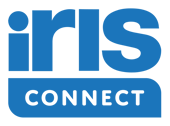The plans to abandon grading lesson observations; teachers or teaching – however you define it - is an opportunity for all schools to raise the profile of peer-to-peer coaching and finally eradicate the stigmata of pigeon-holing teachers! I am motivated to see how schools will take this forward, but I also have some reservations about deserting a national framework.
If we stop grading lesson observations, how are we going to know that something ‘good’ has taken place in the classroom?
Without any framework, if we do not know what is ‘good’, how do we know when we do, or when we do not see, good teaching?
Removing the current framework for grading teaching, does not mean that an observer cannot assess the quality of ‘good’ teaching altogether. Consider this: If I walked into a lesson with the purpose of observing the teacher/teaching, I'll instantly gather a picture of what is going on; whether this is good or not good. However, this information is influenced without a clear purpose and (possibly) with the observers perception of what ‘good teaching’ is. A framework will also guide and influence the observer.
Without a framework or an agreed focus, the process of observing what is ‘good’ becomes even more inaccurate and unreliable. Therefore, we need criteria in place in order to understand what is happening. By all means, let's remove “Outstanding, Good, Requires Improvement and Inadequate” headings because the desire to grade and measure has damaged so many of us!
However, we all know too well that the vast majority of teachers still crave feedback (and possibly a judgement of sorts), and this will continue to be counter-productive when watchdogs; senior leadership teams and consultants fail to offer teachers, qualitative and quantitative feedback that develops them as a teacher.
Where do observations go from here?
A framework that outlines the qualities of what we aspire to as teachers, will only replace tit for tat. It is not that I think we must have something in place to replace the current framework for monitoring the quality of teaching and learning, but I do think the profession will crave a framework, and by definition, we will aspire to be the best we can.
The solution to guide us; is a peer-to-peer feedback framework for improving the quality of teaching and learning. I also believe this framework will need to keep evolving as teaching evolves with the curriculum and the needs of students. I'm not the same teacher I was 20 years ago; in fact I'm not the same teacher I was last term, or even last week! This is because I am modifying my practice in order to keep up with advances in technology; curriculum-change and the ever changing needs of the students. The ideas that I successfully employ in my classroom today will not necessarily be successful next year. The way we quantify that success must evolve too.
Effective feedback has an increasingly important role to play
For example, I recently sat down with a colleague to provide feedback for an observation. This conversation – like most - would have been very different a few years ago; perhaps even a few weeks ago for many of us. Often, we become bogged down with all the ‘ins and outs’ of the lesson and varying degrees of what should be done instead. This may also be coupled with a lesson grade.
We know that grading is more damaging than developmental. That through a summative process, the only comments the teacher will hear, is the judgement itself and not the feedback. How we observe teaching and teachers must change for all of us.
During the feedback, we focused on two or three action points that the teacher had structured through the process of mentoring. Only a few weeks before, my principal described this very passionately to his leadership team and echoed the work we have completed as a school, to improve the quality of peer-to-peer dialogue.
He described 'sophisticated feedback' as the key driver for school improvement. Precise information; pinpointed so specifically, that the message articulated by the observer, was so razor-sharp, that the teacher would know exactly what to implement that very next lesson.
Sophisticated feedback demonstrates development. Free from clutter and peripheral information, 'sophistication' is free of pedantic instruction that imposes teaching fads that would support one-off performances and observer preferences.
That the observer (and the teacher) would know what to look for and see that what teaching was taking place, was typical and not one off. That progress over time was evident and without a framework, that both the observer and the teacher, knew exactly how to evidence this in student books; student learning and student conversations.
I'm looking forward to using this opportunity to move teaching forward.
To discover how leadership teams use this shift in the pendulum, to free themselves from the shackles of a framework that misinterprets teachers up and down the country. That we can determine criteria or a framework that will help teachers to understand and know, the quality of teaching going on in their schools.
More importantly, I'm keeping a close eye on how we curate a framework that will stand up against the evolution of teaching and the ever-changing needs of students. You can read my thoughts in more detail, here.
A guest blog by @TeacherToolkit





Leave a comment:
Get blog notifications
Keep up to date with our latest professional learning blogs.